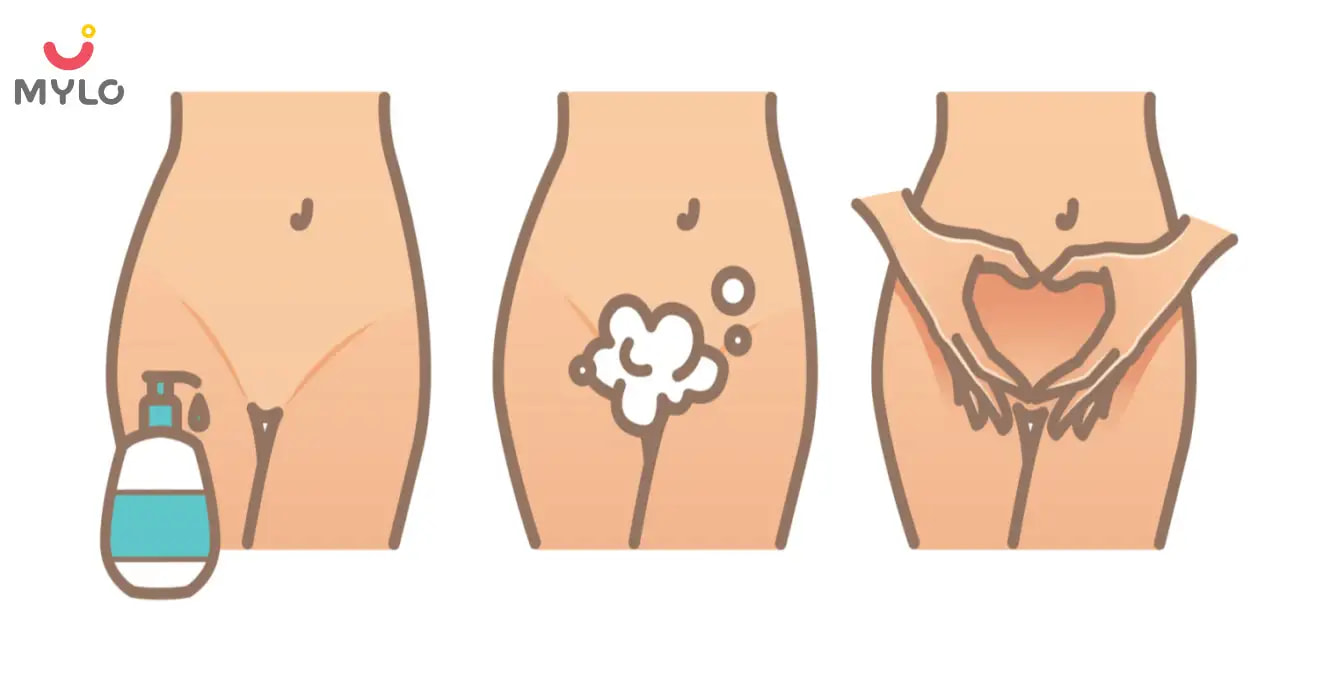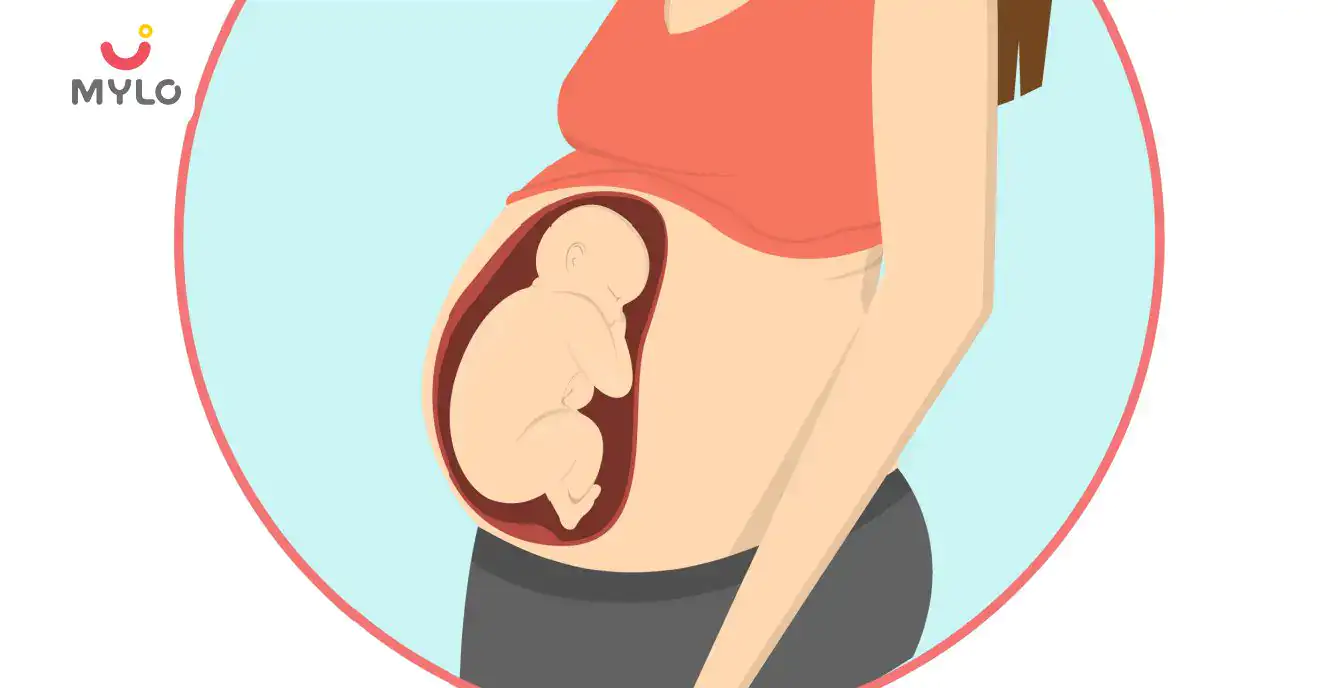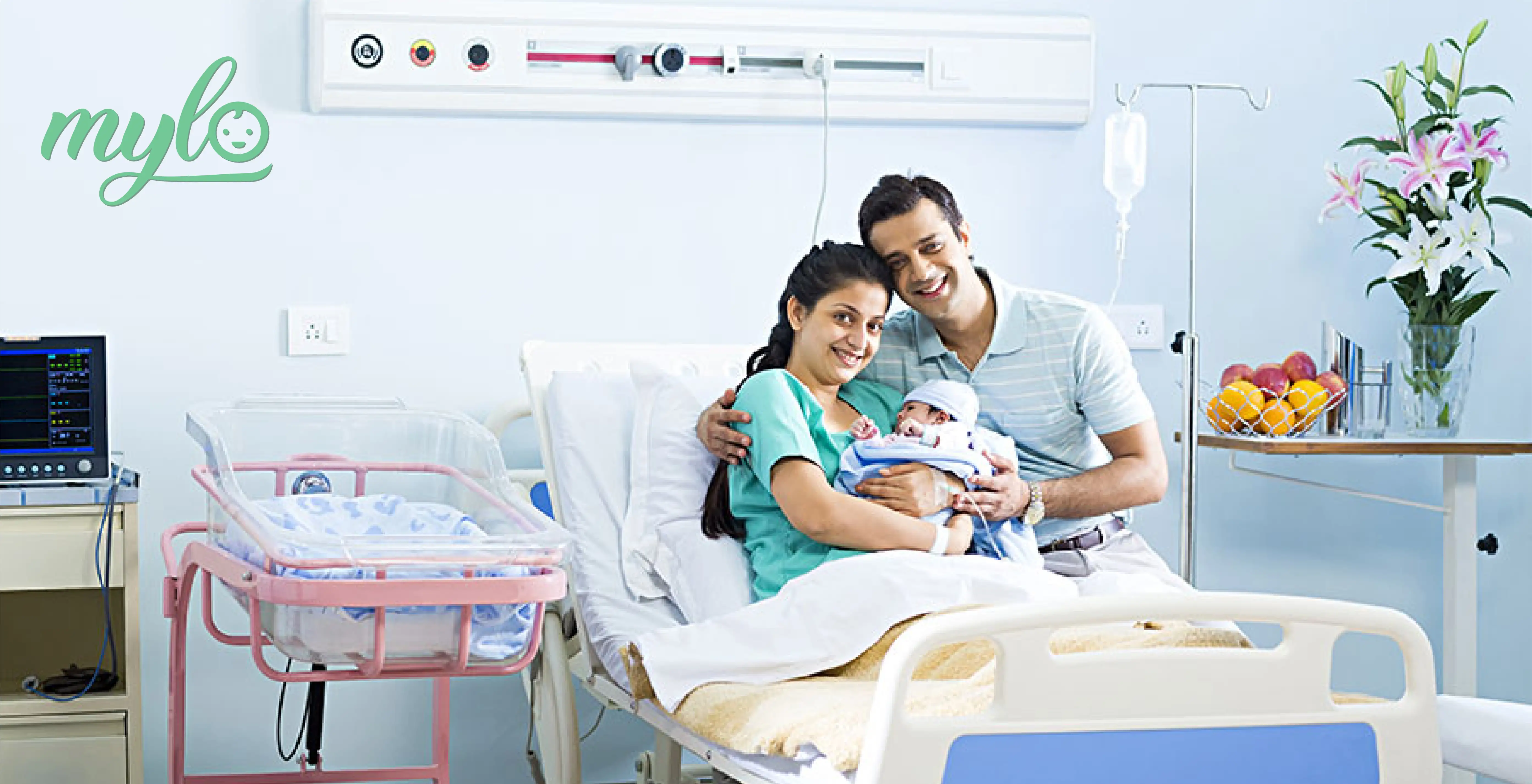Home

Pregnancy

When to Make an Emergency Doctor Visit During Pregnancy?
In this Article

Pregnancy
When to Make an Emergency Doctor Visit During Pregnancy?
Updated on 24 February 2023
Have you been wondering whether to call a doctor or not? There are a few symptoms during pregnancy which indicate that it's time for you to visit your doctor. This article will tell you all you need to know about what you should call your doctor about and when. What is considered an emergency and those which aren’t? It is important to set up a protocol for emergencies with your doctor as early into the pregnancy.
Symptoms that warn you to call your doctor immediately
If you experience the following symptoms, it is important to call your doctor immediately:
1. Heavy bleeding
If you find that you are bleeding heavily during any stage of your pregnancy and this bleeding comes with acute pain, it indicates that your uterus is in some problem. It is vital that you call your doctor immediately.
2. Pain
It is quite normal for a pregnant woman to have some abdominal pain occasionally. However, if you find that the pain is severe and keeps occurring consistently, or if you experience abdominal cramps, dull or shooting pain, then it is important to seek medical assistance.
3. Fever
During pregnancy, if you get a fever then you should contact your doctor immediately. Any fever experienced during pregnancy indicates that there is some infection within your body and there are chances of it spreading to your baby if immediate medical care is not sought.
4. Chills
Getting chills or a cold followed by vomiting, dizziness and nausea and fever could be a serious issue. All of this happens only when there is some sort of infection within the body.
5. Dizziness
Due to the hormonal changes within the body, pregnant women will occasionally feel dizzy. In addition to this, the uterus expands and pressure is exerted on the blood vessels which makes the pregnant women dizzy. However, if you find yourself having severe dizziness and fainting spells then it is an indicator of low hemoglobin levels, low blood pressure and less sugar in the blood.
6. Fatigue
It is quite normal to feel fatigued and tired during your pregnancy. However, if you find yourself constantly exhausted and tired most of the time, then it is necessary to make your doctor aware of it. It is an indicator of not getting sufficient sleep during the night and improper and insufficient nutrition.
You may also like : Emotional Well Being: Importance & Symptoms
7. Painful urination
If a pregnant woman finds difficulty in urinating accompanied by severe pain, then it is an indicator of a urinary tract infection. It commonly happens with pregnant women as the uterus continues to grow and prevents the bladder from properly draining out the urine. When urine remains inside the body it causes infection.
8. Change in the color of the urine
At the time of urinating, if a pregnant woman finds that her urine is of a different color unlike the normal, then it is a sign of dehydration or infection. In such cases, the urine will be darker in color, or cloudy instead of the normal pale yellow color.
9. Vomiting
Generally, pregnant women experience morning sickness or by vomiting. This happens during the initial stages of the pregnancy. Some of them will experience it during the morning while others the entire day. However, if you feel pain over a long period of time then it is important for you to get the help of a doctor.
10. Pelvic pain
Pain in the pelvis causes discomfort and it is generally experienced during pregnancy as a result of the ligaments stretching and shifting to accommodate the other organs. If a pregnant woman experiences a persistent and severe pain in the pelvic region along with other additional symptoms such as bleeding of the vagina, then it is important to contact your doctor.
11. Vaginal discharge
Every pregnant woman will find their vagina discharging leucorrhoea and this is quite normal. It is milky, thin and white in appearance. It is also odorless or slightly smelling for some. However, if a pregnant woman experiences heavy vaginal discharge during the period of her pregnancy, then it is a cause for concern. In addition to this, if you find that your normal vaginal discharge has changed and if there is a difference in color or smell, then contact your doctor immediately.
12. Swelling
Pregnant women experience swelling of the feet and in other parts of the body like that of the legs, hands, ankles, face, etc as a result of the body retaining fluids and blood for the growth of the baby. However, if a pregnant woman experiences excessive swelling, then it is an indicator of high blood pressure. If prolonged without medical assistance, then it can cause a heart attack in the mother and affect the baby as well.
13. Absence of fetal movement
During the second and third trimesters, a pregnant mother will be able to feel the movement of her baby within the womb. However, it differs from person to person. As the mother enters into the final stages of the pregnancy, there is an increase in fetal movements. If a pregnant woman doesn't feel any movements from her fetus for a couple of days, then it is vital that you contact your doctor immediately.
14. Pulling sensation in the abdomen
Generally, pregnant women will feel is slight pull in the stomach accompanied with mild tugging. It is a normal part of pregnancy. However, if a pregnant woman experiences pain along with the pulling sensation and tugging, without any indication of it subsiding, then it is a major indicator that requires your doctor's treatment.
15. Loss of appetite
Pregnant women generally eat a lot lesser during the initial stages of pregnancy. The loss of appetite generally occurs as a result of nausea or vomiting and morning sickness. They are unable to keep the food consumed within. However, if a pregnant woman finds that her loss of appetite is for a prolonged period of time then it is important to contact your doctor. When there is a prolonged loss of appetite, your body gets depleted of all the essential vital nutrients that are important for your body as well as the development of the baby.
16. Dehydration
Sweating is a normal occurrence during pregnancy due to weight gain, tiredness, and even normal physical activities. Pregnant women will experience dehydration if they do not consume a sufficient amount of water. Loss of water from the body can cause serious issues during pregnancy, such as constipation, indigestion, nausea, vomiting, headache, low amniotic fluid that protects the baby within the womb and so on. Thus, if a pregnant woman has issues with dehydration, and faces other related difficulties then it is necessary to approach a doctor.
17. Lack of sleep
Pregnant women suffer from lack of sleep due to the growing baby, weight gain, changing hormones and discomfort. However, if a pregnant woman is not getting sufficient sleep which causes her to be fatigued, tired and exhausted throughout the day and it hinders the normal physical activities of the body, then it is time to visit your doctor and get a solution for it. Prolonged lack of sleep can cause hypertension, other health complications and that of high blood pressure, gestational diabetes, and so on.
18. Itchy palms
With the excess weight gain and increase in the supply of blood to the body and skin during pregnancy, it is normal for a pregnant woman to feel slightly itchy. The itchiness is experienced in and around the areas of the palms, hands, and feet. However, if a pregnant woman experiences increased itchiness, then it is a clear indicator of other health issues which includes problems with the liver.
19. Blurred vision
If a pregnant woman experiences blurred vision and swelling of the face, then it is a result of an increase in the blood pressure and sugar levels of the body. It is important to immediately rush to your doctor at the very first signs of blurred vision, as if left untreated, it can cause serious health issues.
Points to talk to your doctor
When you consult your doctor in regard to any of the above symptoms that you are experiencing, then it is important to clearly describe what you are going through. It is also important to mention anything and everything that you are experiencing even if you think that telling about such things to your doctor is unrelated, otherwise, it could pose a risk to your health and that of your baby. It is important to specifically tell your doctor when you first started experiencing such symptoms, the frequency of occurrence, the severity of the symptoms, as well as anything that you do to relieve it.
Your doctor will want to call and check up on you as well as advise you on what to do and what not to do, hence it is important for you to be within contact as well as be aware of the protocol and schedules for appointments, in case you experience any of the above symptoms.



Written by
Ravish Goyal
Official account of Mylo Editor
Read MoreGet baby's diet chart, and growth tips

Related Articles

Are you Concerned about rectal bleeding in your pregnancy? Here're some relief tips for you!

How to Differentiate Between Implantation Bleeding and Your Periods?

Signs and Symptoms of Pregnancy & Implantation Bleeding that Every Woman Should Be Aware of

A Comprehensive Guide to Using an Intimate Wash During Pregnancy
Related Questions
Hello frnds..still no pain...doctor said head fix nhi hua hai..bt vagina me pain hai aur back pain bhi... anyone having same issues??

Kon kon c chije aisi hai jo pregnancy mei gas acidity jalan karti hain... Koi btayega plz bcz mujhe aksar khane ke baad hi samagh aata hai ki is chij se gas acidity jalan ho gyi hai. Please share your knowledge

I am 13 week pregnancy. Anyone having Storione-xt tablet. It better to have morning or night ???

Hlo to be moms....i hv a query...in my 9.5 wk i feel body joint pain like in ankle, knee, wrist, shoulder, toes....pain intensity is high...i cnt sleep....what should i do pls help....cn i cosult my doc.

Influenza and boostrix injection kisiko laga hai kya 8 month pregnancy me and q lagta hai ye plz reply me

RECENTLY PUBLISHED ARTICLES
our most recent articles

General Toddler
How to Help Your Toddler Overcome their Shyness?

Announcements & Celebrations
Piercing Your Baby's Ears: Risks & Precautions

Third Trimester
Which Food items to Include & Avoid During Third Trimester of Pregnancy for optimum nutrition?

Labour & Delivery
Breech Baby: Causes, Risks, Flipping & Delivery

Labour & Delivery
Everything You Need to Know About the Different Stages of Labour
Vitamins & Supplements
What are the Symptoms of Vitamin D Deficiency in Children?
- Top 5 Effective Ways to Prevent Diabetes in Children
- Why and When Is the Tetanus Toxoid (TT) Vaccine Given During Pregnancy?
- How to Guide Your Child to Make Healthy Food Choices and Get the Required Nutrition?
- How Can You Manage Asthma During Pregnancy?
- Water Breaking Early: Signs, Causes & Next Steps
- Foods to eat for healthy fetal brain development
- How touch can shape babies’ brain development
- In What Situations Can a Doctor Recommend You to Take Bed Rest During Pregnancy?
- How to Hold a Newborn Baby
- Why do you need to burp your baby and what are the best positions to burp your baby?
- Carpal Tunnel Syndrome or CTS During Pregnancy : Symptoms, Causes & Treatment
- Can Nipple Stimulation Help in Inducing Labor Naturally?
- Top 10 pregnancy do's and don'ts that is crucial to have a healthy baby
- 7 Excellent Sources of Omega-3 Fatty Acids For Expecting Mothers


AWARDS AND RECOGNITION

Mylo wins Forbes D2C Disruptor award

Mylo wins The Economic Times Promising Brands 2022
AS SEEN IN
















- Mylo Care: Effective and science-backed personal care and wellness solutions for a joyful you.
- Mylo Baby: Science-backed, gentle and effective personal care & hygiene range for your little one.
- Mylo Community: Trusted and empathetic community of 10mn+ parents and experts.
Product Categories
baby carrier | baby soap | baby wipes | stretch marks cream | baby cream | baby shampoo | baby massage oil | baby hair oil | stretch marks oil | baby body wash | baby powder | baby lotion | diaper rash cream | newborn diapers | teether | baby kajal | baby diapers | cloth diapers |




